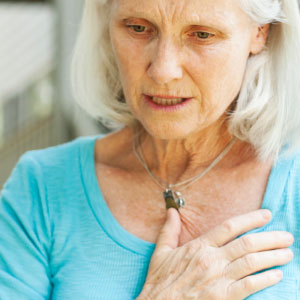 New Health Guide
New Health Guide
ACS is related to your heart and takes place when your heart does not receive a sufficient amount of blood from coronary arteries. Coronary arteries in the body are responsible for supplying blood rich in oxygen to your heart. When these arteries become blocked or narrowed, your heart is unable to receive the required quantity of oxygen, which results in either heart attack or angina.
In the US, over 1.5 million individuals suffer from cardiac arrest every year. Around 40,000 to 50,000 of these individuals die; half of them succumb to death before reaching the hospital. Nearly all of these individuals suffer from a primary disease pertaining to coronary arteries, and about two-thirds of these patients are men.
 The symptoms of acute coronary syndrome are similar to the signs of a heart attack. If you don't take any acute coronary syndrome treatment, then it is likely that you will experience a heart attack. Hence, it is essential for you to take the symptoms of this syndrome seriously. You may experience the following symptoms:
The symptoms of acute coronary syndrome are similar to the signs of a heart attack. If you don't take any acute coronary syndrome treatment, then it is likely that you will experience a heart attack. Hence, it is essential for you to take the symptoms of this syndrome seriously. You may experience the following symptoms:
If you are experiencing a cardiac arrest, then its symptoms can vary: they depend on your age, gender, and whether or not you have any underlying disease or condition. Some of the signs of cardiac arrest include abdominal pain, clammy skin, dizziness, fainting, pain that resembles heartburn, strange fatigue, and the feeling of apprehensiveness or restlessness.
You should see your doctor when you have a severe chest pain; do not take this lightly. It is better to get assistance from the emergency medical services instead of driving to the nearest hospital on your own because you could be experiencing a severe heart attack.
In the case that you experience a chronic and frequent chest pain, discuss it with your healthcare provider as it could be any type of angina. Stable angina normally occurs unsurprisingly. For instance, you can suffer from chest pain when you jog, but it may disappear when you take a rest. However, unstable angina is unpredictable it also takes place when you are resting. This pain can be more severe than that experienced during stable angina. You need to seek medical help immediately if this type of angina happens.
Acute coronary syndrome is normally caused due to atheroma in the coronary arteries. Atheroma resembles plaques or patches of fat that can develop in the lining of the coronary arteries. It may form during a period of several years in one or more locations inside your coronary arteries. Every plaque has a core of soft fat that is protected by a strong shell on the outside. Plaques begin blocking the arteries and make them narrower than before. This results in a reduced flow of blood to the heart, which causes heart attack or severe angina.
Other conditions that can block the coronary arteries include the following:
You are at the risk of acquiring acute coronary syndrome if you:
The following treatments are normally used for curing acute coronary syndrome.
|
MEDICATION |
DESCRIPTION |
|
Aspirin |
It reduces blood clotting quickly as it is absorbed into the bloodstream quickly. |
|
Thrombolytics |
Also known as "clotbusters", thrombolytics dissolve the blood clot that is disrupting the flow of blood to the heart. |
|
Nitroglycerin |
It widens the narrow blood vessels and enhances the flow of blood, so it is useful for treating angina and chest pain. |
|
Beta Blockers |
They relax the heart, reduce the high blood pressure, slow the rate of your heart, and improve blood flow to the heart, which results in an alleviation of chest pain. |
|
ACE inhibitors and ARBs |
They enable blood to easily flow from the heart. They lower your blood pressure, preventing the onset of another heart attack. |
|
Calcium Channel Blockers |
They calm down your heart to improve the blood flow to your heart. |
|
Cholesterol Lowering Drugs |
Also referred to as "statins", these drugs can reduce the level of cholesterol in your body and can prevent the formation of plaque deposits. They also stabilize the plaque preventing it from rupturing. |
|
Clot Preventing Drugs |
Medicines like prasugrel (effient) and clopidogrel (plavix) are used for preventing blood clots. It prevents the blood platelets from sticking together. Clopidogrel can increase the chances of bleeding so you should let your healthcare provider know if you're taking it. |
If the above medications aren't helpful enough, you can go through any of the following surgical procedures:
The only way to prevent acute coronary syndrome from attacking you is by changing your lifestyle. You should bring the following changes in your lifestyle: